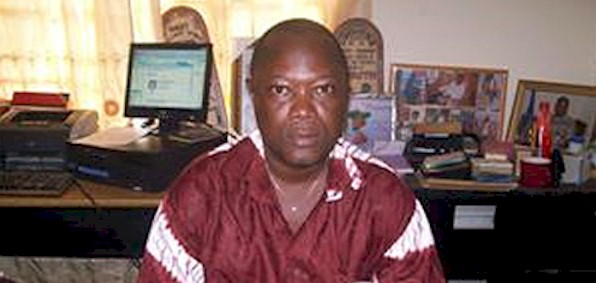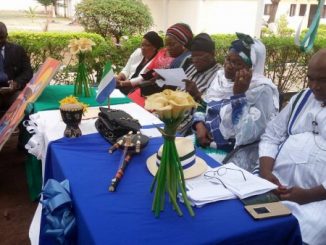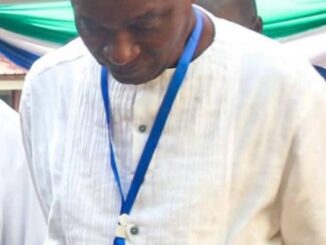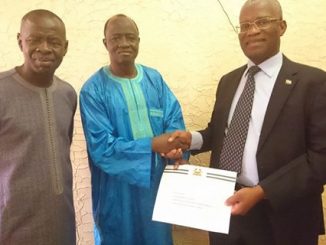
John Baimba Sesay
Boris Johnson as a Journalist worked at The Times and Daily Telegraph newspapers. He edited The Spectator newspaper between 1999 and 2006. He was Member of Parliament for Henley from 2001 to 2008 and was also Mayor of London. He is a member of the Conservative Party and the current UK Foreign Secretary.
Nnamdi Azikiwe was to serve as the first president of independent Nigeria from 1963 to 1966. He opened and edited a number of newspapers in Ghana and Nigeria and later became an active politician. Obafemi Awolowo was a great Nigerian politician. He also was an active journalist and edited The Nigerian Worker, amongst other publications.
There is a clear link between politics and journalism though, there seems to be a very thin boundary, or perhaps, “a reflective door in the firewall, such that with time, politicians and journalists cross the line changing roles and moving from side to side,” argues Aminat Afolabi in a piece, titled ‘Politics and Journalism, the Interwoven Relationship between Them.”
I insist on being accurate and factual in reporting and giving out information. Being neutral can be challenging, for as human I do take position on issues. John Morton wrote for the American Journalism Review (December/January 2010), “The very basis of the business model for modern newspapers rests on the theory that what newspapers report is factual and that opinions are segregated to the opinion pages.”
Johann N. Neem argues, that the cost of neutrality is an ill-informed public and that “a press avowedly not neutral may serve us better than a press that privileges neutrality over objectivity” (Read his opinion: Reporters can’t be objective if they remain neutral). Christiane Amanpour is CNN’s international correspondent. As a journalist, she said, she could not be morally equivalent and nor could she present false factual equivalence. Rather, she insists “on being truthful, not neutral.”
I have followed with apt interest the debate around Dr. David Tam Baryoh’s decision to accept an executive position in the governing APC’s Kono Executive, as Publicity Secretary. Some are arguing from the position of Tam’s professional background- journalism. I am of the view, that he has committed no crime so far as his decision to be political could be discussed.
Tam Baryoh has his constitutional right to belong to any Political Party of his choice. Being a journalist should not be a yardstick as to why one should not belong to a political party for there is no legal restriction to the effect. He has for decades built his journalist career. He has made a name for himself and must be respected for his decision.
His recent decision should not be viewed from the perspective of him being neutral. And let me make this clear, all those who have been castigating Tam Baryoh are politically not honest and may be coming from an anti-APC background. What can we say of the sheep in wolf’s clothing- politicians in civil right groups? Isn’t it good to go public than be pretending and stealthily being political? Had Tam taken an executive position in any Opposition Party, he would have been hailed, lifted on mountain tops in commendation. His only crime was to have taken an APC position!



